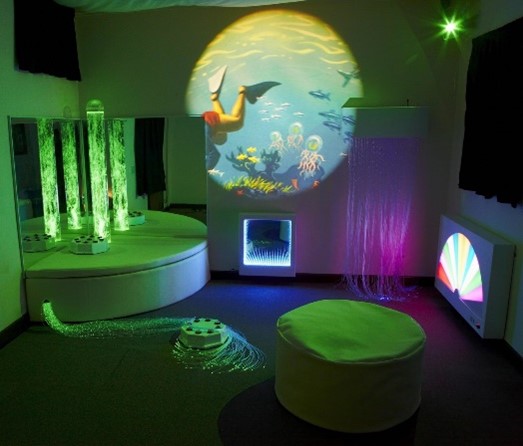A survey that was conducted in 2019 reports that one in 59 children have been diagnosed with autism spectrum disorder. For many children, the resulting difficulties with effective communication, social interaction and comprehension can result in atypical behaviours that make it difficult for them to focus and thrive in everyday settings.
What are the benefits of sensory rooms for children with autism who are deaf and/or non-verbal?
Children gain access to appropriate sensory stimulation and their bodies learn how to respond appropriately to the stimulation.
- Children gain access to appropriate sensory stimulation and their bodies learn how to respond appropriately to the stimulation.
- Sensory rooms can enhance learning through occupational therapy (OT) or adult-directed play, which engages different areas of the brain, leading to improved information retention.
- Time in a sensory room helps children improve their visual, auditory and tactile processing, as well as fine and gross motor skills.
- By providing a sense of calm and comfort, sensory rooms help children learn to self-regulate their behaviour’s, which ultimately improves focus.
Sensory Regulation at Home
For children who have access to sensory rooms at school or through other OT programs, creating a space for behavioural regulation in the home can be beneficial. Finding a quiet corner of the home to set up a small tent with weighted blankets inside, crash pads or a hammock swing can encourage children to take some time to calm and redirect themselves when they are feeling overstimulated. Time in this space can help them to successfully complete routine tasks such as brushing their teeth or putting away their toys, and also allow them to sit, focus and successfully participate in activities such as family meal time.
